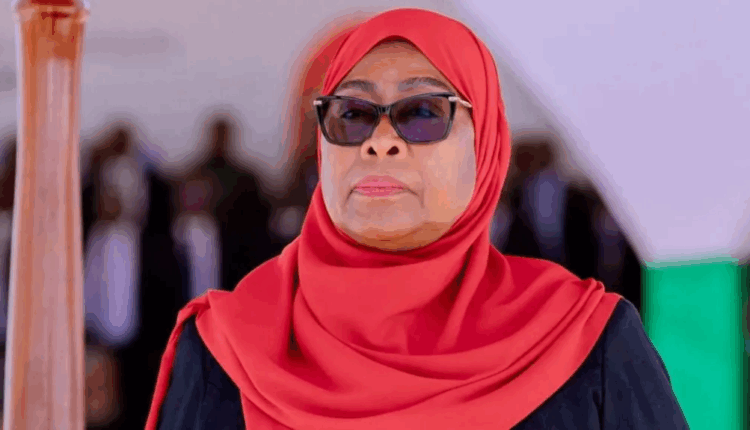Tanzania remains in the grip of turmoil following its worst post-election violence in decades, a crisis that has shaken the country’s long-standing reputation as a stable and peaceful nation in Africa.
The unrest has drawn rare criticism from regional and continental organizations, raising concerns about the country’s democratic trajectory.
In a defiant inauguration speech on Monday, President Samia Suluhu Hassan insisted that the recent election was fair and transparent. However, she acknowledged that people had died during protests and blamed foreign actors for instigating the unrest. The official death toll remains unclear, with families still searching for or burying relatives affected by the violence after Samia secured a second term with 98% of the vote.
Samia, known for her calm and gentle demeanor, initially inspired optimism when she assumed power in 2021 following the sudden death of her predecessor, John Magufuli, whose rule was widely criticized for authoritarianism. But that image has shifted amid the recent crisis.
“Samia has pushed Tanzania into its thick winter of protests, instability, and uncertainty,” said Prof. Peter Kagwanja, a Kenyan policy analyst.
The protests, largely led by young people, have drawn comparisons with global movements where Gen Z has mobilized against entrenched leadership and unresponsive governments. Analysts note that the unrest, while unprecedented in Tanzania, followed years of political tension marked by stalled reforms, simmering youth frustration, internal party power struggles, and the persecution of opposition figures.
“The protests were just the culmination of years of anger and grievances that have been bottled up by Tanzanians,” said Godfrey Mwampembwa, a Tanzanian-born political cartoonist known as Gado. His satirical work, portraying Samia as intolerant of political competition, has been widely shared on social media.
Veteran journalist Jenerali Ulimwengu described the election as “the boiling point reached by societal soups that have been cooking for decades in a slow cooker without being noticed by an absent-minded rulership.” Similarly, Gado accused the ruling Chama Cha Mapinduzi (CCM) party of being “tone-deaf” to citizens’ demands for change.
Charles Onyango-Obbo, an East African political commentator, said the CCM “had long mistaken calm for maturity, but it was only age and arrogance hiding behind a glorious history.” The CCM, Tanzania’s post-colonial liberation party, has historically maintained firm control over both the government and the national psyche.
This latest election has exposed a surprising new side of Tanzania, a country traditionally seen as protest-shy, especially compared to neighboring Kenya. In the lead-up to the poll, the CCM moved to eliminate credible opposition. Two major opposition leaders were blocked from contesting: Tundu Lissu is in detention on treason charges he denies, and Luhaga Mpina’s candidacy was rejected on technical grounds.
“You don’t jail your opponents; you seek support from people against the opposition,” said Prof. Kagwanja, noting that such actions contradict the democratic principles Tanzania was founded on under Julius Nyerere.
Samia, 65, popularly known as “Mama Samia,” now faces accusations of overseeing a repressive government that violently suppressed historic protests. Her leadership had initially been admired for allowing opposition parties to operate and for pledging to reopen Tanzania to the world through her “4R” doctrine—reconciliation, resilience, rebuilding, and reform.
Born and raised in Zanzibar, Samia’s early tenure inspired hope for moderation and humility. However, analysts say her political strategy shifted as she sought a second term, focusing on consolidating power within the CCM and sidelining perceived threats. Over the last three years, she reshuffled her cabinet multiple times and replaced military and intelligence chiefs, moves seen as securing loyalists to maintain control.
Known among supporters as “Simba jike,” or lioness, Samia secured her party’s nomination in January. But in the months leading to the election, a wave of arrests, abductions, and killings of opposition figures marked a dramatic contraction of political space. The election itself was conducted under an internet blackout and curfew, and hundreds may have died during post-election unrest, though authorities have yet to release an official toll.
The violence has shattered Tanzania’s image of calm and consensus cultivated over nearly six decades. “The myth of Tanzanian exceptionalism lies in ruins,” said Onyango-Obbo. In rare criticism, the African Union and the Southern African Development Community said Samia’s victory fell short of accepted democratic standards, citing ballot-stuffing, repression, and systemic flaws. The main opposition, Chadema, dismissed the results as “completely fabricated.”
“Samia’s challenge was not winning the election. Instead, it was to win the hearts and minds of Tanzanians and East Africans that she was elected in a fair contest. Lamentably, Samia chose coronation. She closed all avenues to a fair contest,” Prof. Kagwanja said.
As she begins her second term, analysts warn that Samia faces mounting international scrutiny, which could undermine her legitimacy and further complicate Tanzania’s political future.
Source: BBC


Comments are closed.